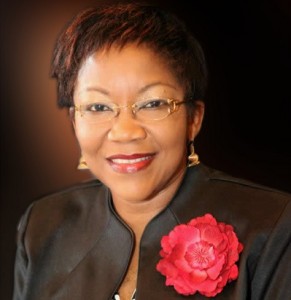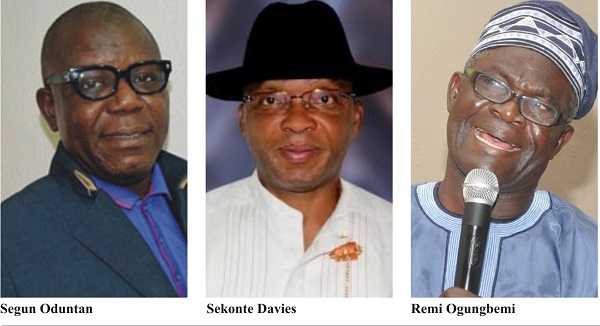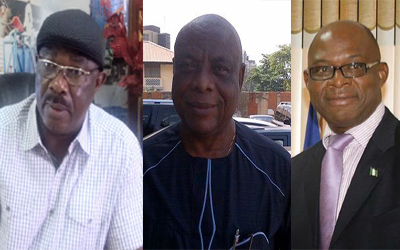Port State Control: The Need To Train PSC Officers

Since international shipping remains a highly competitive and profit driven business, merchant ships often trade outside the areas that are under the jurisdiction of the Flag State. Hence, the International Maritime Organization (IMO) established that most National Maritime Administrations cannot guarantee that all ships under their flag are in full compliance with all the requirements contained in the instruments to which the Flag State is a party, hence the need for Port State Control.
Port State Control (PSC) is the inspection of foreign ships in other national ports by PSC officers (inspectors) for the purpose of verifying that the competency of the master and officers on board, and the condition of the ship and its equipment comply with the requirements of international conventions such as SOLAS (Safety Of Life At Sea).
Recently, a regional training workshop was organized to enhance the capacity of PSC inspectors under the framework of the European Union, Africa, Caribbean and Pacific Group of States and the International Maritime Organization (EU/ACP/IMO) Project on support to the Maritime Sector in West and Central Africa.
The 8-day intensive capacity building initiative was aimed at eliminating substandard ships in the West and Central African Region by equipping Port State Control inspectors working in the maritime administrations of the 19 beneficiary countries with the expertise needed to perform their duties more effectively.
MMS Plus was at the event to bring you the views of several key stakeholders at the workshop.
The Minister of Transportation, Hon. Rotimi Amaechi noted that the workshop provided an opportunity for all Port State Control Inspectors to update their knowledge and enhance the general drive towards building a robust and effective maritime safety regime in the West and Central African Region.
According to Amaechi, the high level of maritime activities in African waters compels enormous challenges to coastal countries in the West and Central Africa region in terms of building a robust and effective maritime safety regime.
“The need to continually update the knowledge of our Ports State Control Inspectors cannot be overstated especially against the backdrop of rapid changes in both the industry and operating environment levels” he said in his opening address at the training.
Amaechi posited that without regulations, companies may operate their ships at levels below the generally accepted maritime standards in order to gain competitive advantage and he stressed that the results will be a rapid rise in accident rates with unacceptable levels of loss of life, property or devastating pollution of the marine environment.
Mrs. Mfon Ekong Usoro, Secretary General, Memorandum of Understanding on Port State Control for West and Central African region (Abuja MoU) stated that the positive outcome of these trainings are evident in the quality of inspections, increase in number of inspections, and the significant reduction in the number of alleged wrongful detention and unprofessional conduct on the part of Port State control officers.
According to Usoro, such workshops foster coordination and harmonization of Port State Control regulations and procedures within the region even as she expressed hope that more administrations will implement the New Inspection Regime approved by the Port State Control Committee of Abuja MoU in 2012. Paris MoU, Tokyo MoU, Black Sea MoU, Mediterranean MoU have all keyed into this New Inspection Regime. An integral part of the New Inspection Regime is familiarization with and the use of Abuja Information System.
Usoro added that since 2010, the Secretariat of Abuja MoU through the assistance from the Technical Cooperation programme of the IMO, intensified efforts towards harmonization of port State control procedures in the region and commencement of inspections by countries that were not carrying out port State inspections.
Usoro lamented that the Abuja MoU Register of Port State Control Officers had only 145 officers for 16 countries and that number was inadequate for attainment of the 15% inspection target. She stressed that according to Port State Inspection data, an increase in the number of available inspectors leads to increase in number of inspections undertaken and reduction in number of substandard vessels.
However, William Azuh, Head of Africa Section, Technical Cooperation Division, IMO & Project Manager FlagPort WACAF stressed that the major objective of the Project was to prepare the beneficiary countries for the IMO Mandatory Member State Audit Scheme.
“The audit hitherto used to be Voluntary but not anymore. All member states of IMO would be audited. A schedule of the audit exercise has been published for 2016 and 2017. Nigeria will be audited in June this year as well as Senegal scheduled for July this year A natural question would be, how prepared are the countries for the audit? Food for thought!” He said.
Speaking on behalf of the IMO Secretary-General, Mr. Kitack Lim, Azuh described the IMO Audit scheme as a health-check of maritime administrations aimed at correcting any identified gaps and challenges in the respective administrations. Azuh noted that the audit was primarily concerned with the prevention of accidents, casualties and environmental damage from ships and establishing mechanisms to manage the aftermath of accidents. The critical feature for the above measures is capacity building, both human and institutional especially for developing countries.
“I would like to emphasize that the audit is not a name and shame exercise. IMO’s intention is to strengthen administrations in their compliance with IMO instruments. One thing I do know for sure is that maritime administrations are striving to ensure that they are no caught unawares” Azuh added.
Azuh explained that the 1.2 million Euros Project on Flag State Implementation, Port State Control and Maritime Legislation review for 18 beneficiary countries in west and central Africa, was part of the 10th European Development Fund (10th EDF) specifically devoted to the development of maritime and shipping activities in the region.
Azuh called for the establishment a data base of Nigerian graduates from World maritime institutions as a resource base that could be pooled together to perform specific tasks in the sector when the need arises. He disclosed that since the inception of the World Maritime University, there had been 946 African graduates in various fields of maritime. Of this number, 172 are Nigerians, making up a sizeable percent of the total number. For the International Maritime Law Institute, 224 Africans have graduated from the institution; out of this number 74 are Nigerians.
“Once you mention Philippines, our minds go to world’s suppliers of seafarers, India and Bangladesh-ship breaking and recycling, Singapore-shipping service and containerization, Republic of Korea, China, Japan-shipbuilding, Great Britain-shipping Finance and a lot of other countries. So, how about Africa? How about Nigeria?” he queried.
By Kenneth Jukpor







